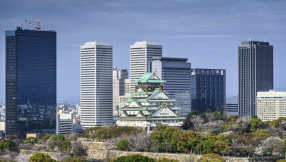Bhutanese pastors, Tandin Wangyal and Mon Thapa were released on bail from the Dorokha police station April 22 after being arrested March 5 and held without formal charges.
The men were detained while they were carrying a sick child to a clinic in Khabdaney village, a place they arrived the previous day to hold a three-day seminar for 30 Christians who came from neighbouring towns.
There is still no information regarding the formal charges from the Office of the Attorney General. However, the families of Wangyal and Thapa (also known David Lobzang), have requested 'for prayers to continue' in the lead-up to the pastors' May 5 court appearance.
"We are beyond happy," a relative of Thapa told Open Doors International,a global charity that provides aid to Christians who live under pressure because of their faith, whichconcerned individuals and faith-based organisations worldwide to write a petition to Bhutan's King, Prime Minister and Attorney General for the release and dismissal of the religious allegations against arrested pastors.
Bhutan, a Buddhist-majority nation comprising more than 733,000 people, transitioned to a constitutional democratic monarchy in 2008, after a century of absolute monarchy. Bhutan's constitutions states in Section 4, Article 7 that "citizens shall have the right to freedom of thought, conscience and religion", and adds "no person shall be compelled to belong to another faith by means of coercion or inducement, " also known as proselytism.
The police officials said they found no proof the pastors had forced believers to convert to Christianity, eliminating the possibility of charges of proselytism after questioning several times the 30 Christians who took part in the three-day meeting, and to which the pastors had been invited.
Bhutan's Home Minister Damcho Dorji also told the Business Bhutan newspaper that religion played no part in the pastors being arrested.
"They had not obtained permission from local authorities," Dorji was quoted as saying. "This is a crime under the penal code ... If you have violated this provision, it does not matter whether you are Buddhist, Hindu or Christian."
Despite the constitution's promise of religious freedom, Bhutan's governing body that regulates religious organizations, Chhoedey Lhentshog, has yet to recognise Christianity as an official religion, alongside Buddhism and Hinduism. The Religious Organisations Act of Bhutanstates that the existence of religious organisations is for the protection of the country's Buddhist spiritual heritage.
According to the CIA World Factbook, the country's population is roughly 75 per cent Buddhist, 22 per cent Hindu. The remainder includes thousands of Christians who are not legally recognised.
Bhutan is No. 31 in Open Doors' World Watch List, an annual ranking of countries where life as a Christianity is most difficult. They endure threats and pressures from village heads and clerics to return to Buddhism. They can pray and worship privately in their homes, but they struggle to meet in congregations and to obtain official permission to do so.













